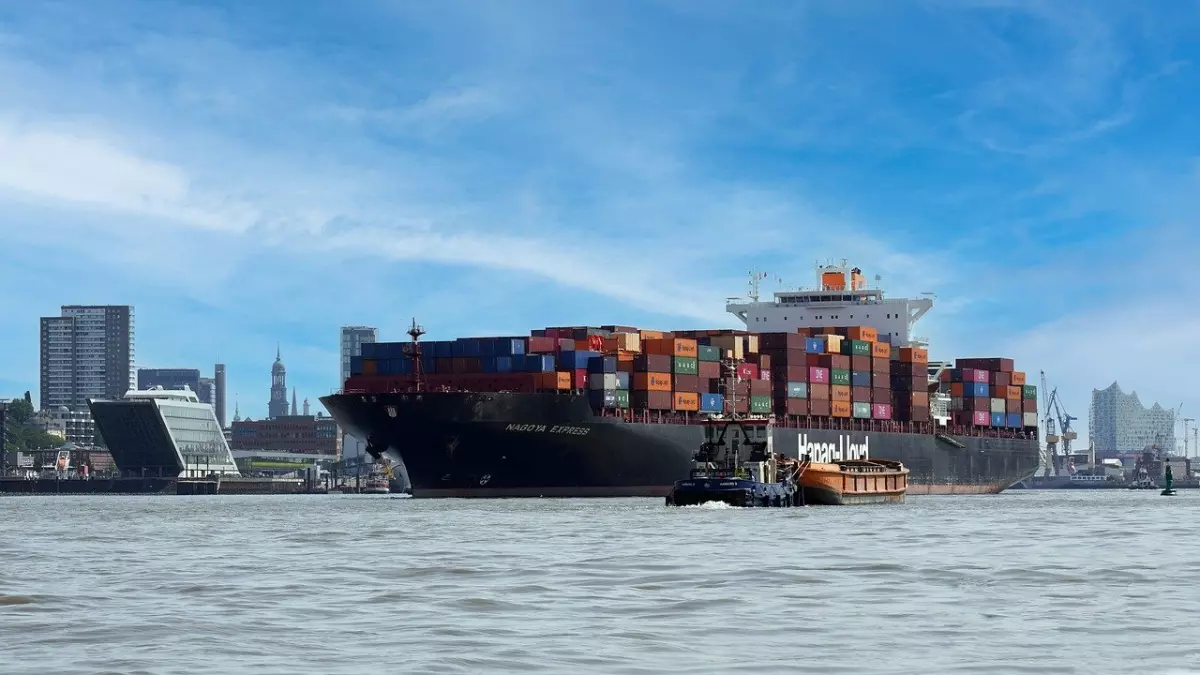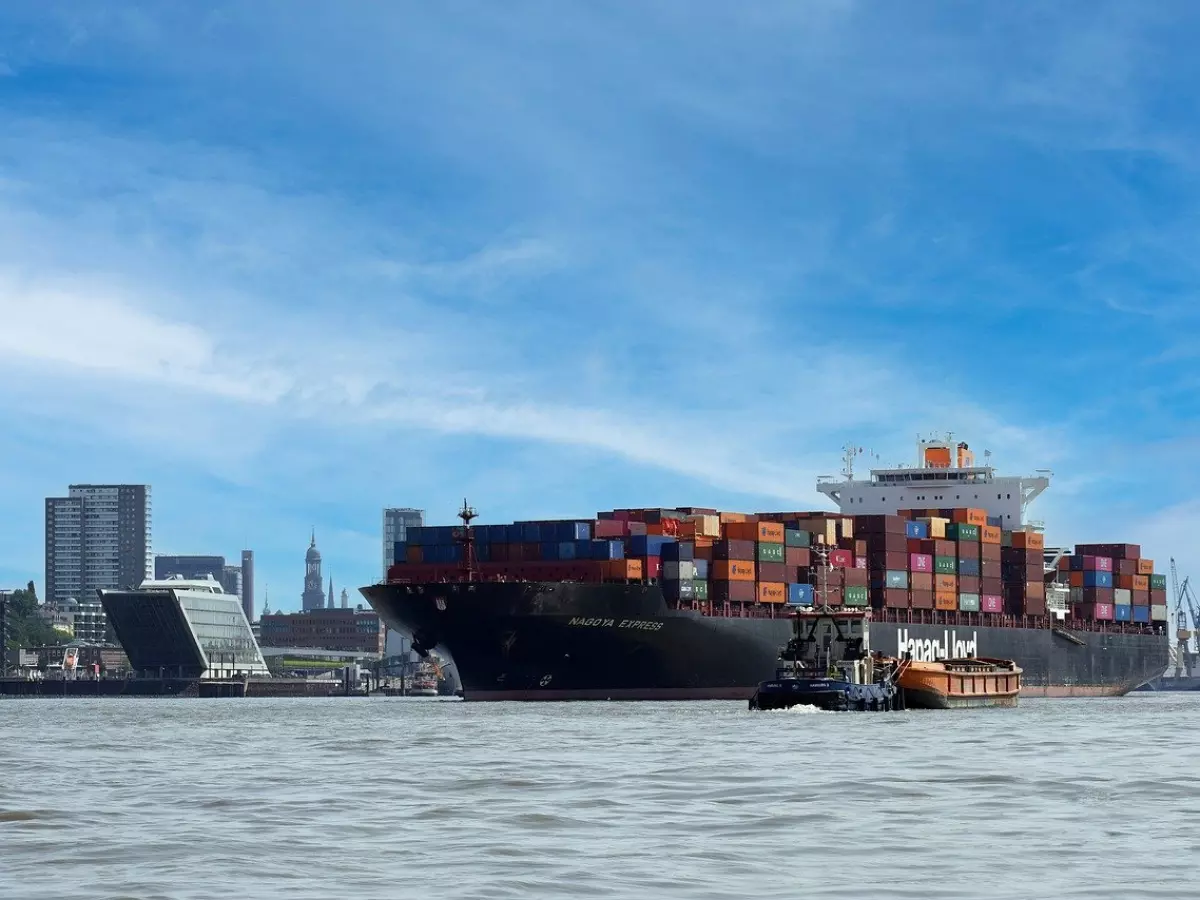Supply Chain's Silent Revolution
What do a chess grandmaster and your Amazon delivery have in common? Both rely on complex algorithms to make the right moves at the right time. But while the chess player’s strategy is visible, the AI that powers your supply chain is working behind the scenes, quietly transforming how goods move across the globe.

By Laura Mendes
Think about it: every time you order something online, there’s a hidden network of decisions being made in milliseconds. From the moment you click “buy,” AI algorithms are hard at work optimizing routes, predicting demand, managing inventory, and even negotiating prices. But how exactly is AI reshaping the supply chain industry, and why should you care?
Let’s start with the basics. The supply chain is the backbone of any business that deals with physical goods. It’s the system that gets products from manufacturers to consumers, and it’s a complicated web of logistics, transportation, warehousing, and inventory management. Traditionally, this process has been managed by humans, but as businesses scale and globalize, the complexity becomes overwhelming. Enter AI.
The Power of Prediction
One of the most significant ways AI is transforming supply chains is through predictive analytics. AI algorithms can analyze vast amounts of data to forecast demand more accurately than any human ever could. By predicting what products will be needed, where, and when, companies can reduce waste, avoid stockouts, and ensure that shelves are always stocked with the right items. This is especially crucial in industries like retail and manufacturing, where timing is everything.
For example, AI can analyze historical sales data, weather patterns, and even social media trends to predict when a surge in demand for a particular product might occur. This allows companies to adjust their inventory levels in real-time, ensuring they’re always prepared for whatever comes next.
Route Optimization: The Fast Lane
Ever wonder how your package arrives so quickly? AI algorithms are behind the scenes, optimizing delivery routes in real-time. These algorithms take into account traffic conditions, weather, fuel costs, and even driver availability to find the most efficient path from point A to point B. The result? Faster deliveries, lower costs, and happier customers.
But it’s not just about speed. AI can also help reduce the environmental impact of supply chains by minimizing fuel consumption and cutting down on unnecessary trips. In a world where sustainability is becoming increasingly important, this is a game-changer.
Inventory Management: Balancing Act
Managing inventory is a delicate balancing act. Too much stock, and you’re wasting money on storage. Too little, and you risk losing sales. AI algorithms help businesses find that sweet spot by analyzing data on sales trends, supplier performance, and even economic indicators to ensure that inventory levels are always optimized.
In fact, some companies are using AI to implement “just-in-time” inventory systems, where products are only ordered and produced when they’re needed. This reduces waste, lowers costs, and ensures that businesses can respond quickly to changes in demand.
Supplier Relationships: Negotiating with AI
Believe it or not, AI is even changing the way companies negotiate with suppliers. Algorithms can analyze market trends, supplier performance, and pricing data to help businesses get the best deals. In some cases, AI can even automate the negotiation process, ensuring that companies are always getting the best possible terms without the need for human intervention.
And it’s not just about price. AI can also help businesses evaluate suppliers based on factors like reliability, sustainability, and ethical practices, ensuring that companies are working with partners who align with their values.
Risk Management: Navigating Uncertainty
The global supply chain is a fragile system, vulnerable to disruptions from natural disasters, political instability, and even pandemics. AI algorithms can help businesses navigate these uncertainties by identifying potential risks and suggesting contingency plans. For example, if a supplier in one country is affected by a natural disaster, AI can quickly identify alternative suppliers and reroute shipments to minimize delays.
This kind of proactive risk management is becoming increasingly important as supply chains become more global and interconnected. With AI, businesses can respond to disruptions in real-time, ensuring that they can continue to operate smoothly even in the face of unexpected challenges.
The Future of Supply Chains
So, what’s next for AI in the supply chain? As technology continues to evolve, we can expect AI to play an even bigger role in areas like autonomous vehicles, drone deliveries, and blockchain-based supply chain tracking. The possibilities are endless, and businesses that embrace AI will be better positioned to thrive in an increasingly competitive global market.
At the end of the day, AI is quietly revolutionizing the supply chain industry, much like a chess grandmaster making strategic moves that go unnoticed until the game is won. And just like in chess, those who fail to adapt will find themselves left behind.





